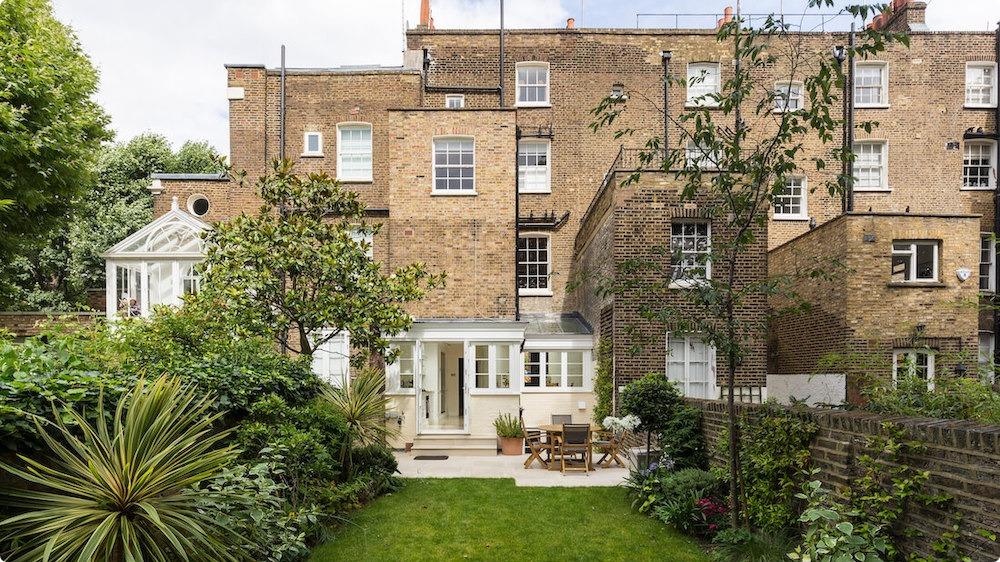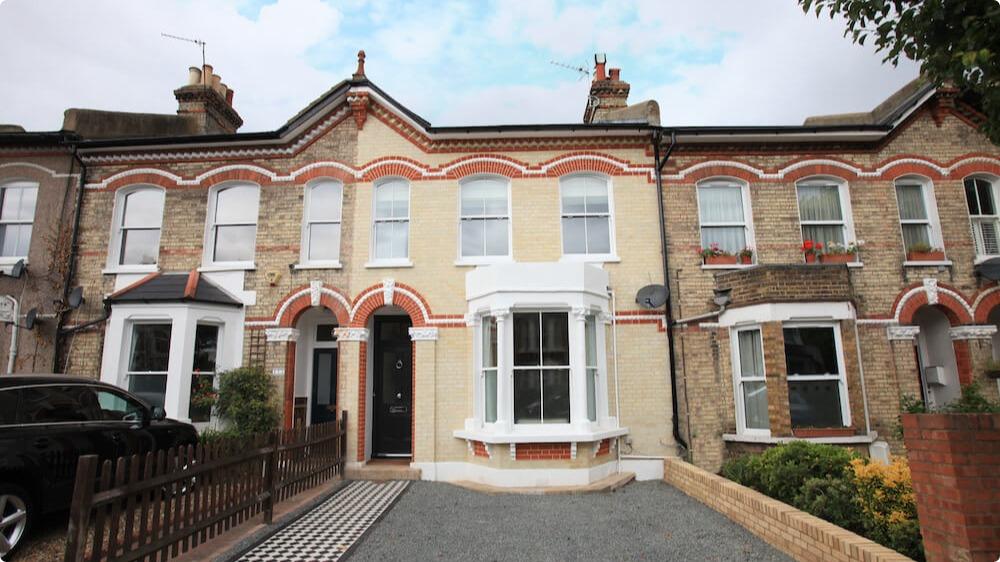Why would I want to remortgage my home?
There are many reasons why you may want to remortgage, but here are some of the most common reasons to remortgage your house…
Your current deal is about to end
When your current deal comes to an end, your lender will put you onto its standard variable rate (SVR). This is likely to be higher than your old interest rate, so you’ll probably end up paying more money each month.
You should start looking around for better deals, three to six months before your current rate ends. Speak to one of our advisers, who can help you switch to a better deal.
Equity release
As you make your monthly mortgage payments, you’re slowly paying off your debt and accumulating equity. After a while, you may choose to release this equity as a new loan.
For example, if your home is worth £400,000 and you owe £200,000 on your mortgage, this means you have £200,000 available in home equity. You can either release this in its entirety or as a proportion of what your equity is.
Increased property value
If the value of your house has risen since you last took out your mortgage, you may find you’re eligible for much lower rates, meaning lower monthly repayments. This can be worth looking into to make sure you aren’t paying more than you need to.
You’re on a high-interest rate
Depending on when you took your mortgage out or what deal you opted for, you may find the rate you’re on now is much higher than it needs to be. If you’ve seen a better deal on the market, you may decide the costs involved with a remortgage (such as an early repayment charge) are worth paying due to the savings you’ll make month on month.
Want to overpay
You may have a higher paying job or have been gifted some money, meaning you have more disposable income and can afford to pay more on your monthly mortgage repayments. This is great news! However, not all lenders will allow you to overpay so you may want to switch to another lender.
Again, this could mean you have to pay an early repayment charge, but we can advise whether it’s still beneficial to switch.
Remortgaging for home improvement and extension
Remortgaging your home can be a great way to make those home improvements you’ve been pondering over for so long. Whether it’s a dreamy, state-of-the-art kitchen or an extra room to make into a cosy home office, you might be able to release some equity you’ve built up to help fund these projects, and maybe add value to your home at the same time!

An example of an extension project you might use a remortgage to fund.
Remortgaging to buy another property
With enough equity stored up in your home, you might choose to release this in order to buy another property, such as a new holiday home. The money can be released either to fund a deposit or to buy another house outright. However, in the case of the former, you’ll need to consider if you can afford to pay off two mortgages at the same time.
Buy-to-let remortgaging
If you want to buy another home in order for one of your properties to be let out, then you’ll be looking at a different mortgage process to simply purchasing another residential household. Buy-to-let mortgages will depend on the income you’ll receive from the investment.
What are the benefits of remortgaging?
There are plenty of benefits to remortgaging, including…
- Exploring all available competitive mortgage options can allow you to find one that suits your needs and save money too, should a lower interest rate be on offer.
- For homeowners currently on a Standard Variable Rate (SVR), you have the chance to potentially reduce your payments.
- Remortgaging is an attractive option for renovators, as it allows you to borrow a significant amount of money and is likely to have better interest rates than high-street personal loans.
- Depending on who you manage the financing of your project, it could be possible for the added value your renovation creates to be utilised to get you a better remortgaging deal.
When to remortgage?
There are certain points in time and certain scenarios where it is best to consider remortgaging. These include…
- When your current deal is about to end
- When your house price has gone up
- When you want to overpay on your mortgage
- When you’re ready to switch from an interest-only to a repayment mortgage
If you’re unsure as to whether now is the right time to remortgage, you can always use Resi Finance to have a broker assess your current situation.
A step by step process for remortgaging
Remortgaging can feel daunting at first, but don’t worry. Like all things, it is a step by step process that any broker will be able to guide you through. For most properties, this journey will look something like this.
Step 1:Ask your lender for a closing balance
Your current mortgage provider will need to disclose how much you have left on your mortgage as it stands today. This will be the minimum borrowing amount you’ll need from a new lender.
Step 2: Speak to a mortgage broker or adviser
Most people choose to use a mortgage broker to help them explore the market. This is because they have access to more rates than just the high street. They can also make sure your remortgage plans are right for your situation.

Our Resi Finance team are always on hand to provide free mortgaging advice.
Step 3: Consider all the costs
This is a good time to sit down with your broker and map out all the costs involved, such as any early repayment charges, brokerage fees, valuation costs, etc.
Step 4: Complete an agreement in principle
An agreement in principle is where a lender will provide the outline of a mortgage, but hasn’t yet committed to it because a full credit check has yet to be completed. If the deal looks good, you can proceed to formalise this.
Step 5: Apply for your new mortgage
Once you’ve found the right mortgage deal, you can begin the application process. This involves handing over details of your personal finances, such as proof of your household’s outgoings and salaries.
Step 6: Your lender will run a credit check
Following the paperwork, the lender will run a hard credit check on you. This means you should avoid taking on any new debt in the run-up, as well as be cautious of making any large purchases.
Step 7: Your property will be valued
As part of the process, a property valuation will take place. This will either happen remotely or by someone visiting your property and assessing its exterior.
Step 8: The new lender will send you the mortgage offer letter
You’ll receive an offer in the post and this will be actionable for between three to six months. Make sure you double-check these dates!
Step 9: Review the offer
Take some time to properly assess the final offer and make sure you’ll be able to make the monthly repayments. You may have found, over the course of the application process, that your circumstances have changed and no longer suit the offer.
Step 10: A solicitor or conveyancer will manage the transfer of your mortgage
You’ll need a solicitor to manage the transfer, as they’ll use the new mortgage to pay off the old and also get the new details logged in with the Land Registry.
How much does it cost to remortgage? All fees explained
With so many steps involved and different professionals required, there are a number of short term and long term costs to consider. While you may not be required to pay all of them, here is a list of all the associated costs.
- Early repayment charge
- Exit fee
- Deeds release fee
- Arrangement (product) fee
- Booking fee
- Valuation fee
- Conveyancing fee/ Legal fee (solicitor fee)
- Broker fee
- New mortgage payments
See here for a detailed breakdown of all the costs involved with getting a new mortgage.

Remember that house valuations will assess just the exterior of the property.
House valuation for a remortgage
The property you’re borrowing against will need to be valued for mortgage purposes (this is called a mortgage valuation) and this will take place either through a virtual assessment or in person. However, it’s worth noting that the surveyor will only visit your property to look at the exterior. A newly refurbished kitchen won’t be part of the assessment.
Some lenders charge for this, although some include it in the cost of the product, so it’s worth checking to see if you have to pay if you’re moving to a new lender. Expect a mortgage valuation to cost upwards of £150, depending on the value of the property you’d like to borrow against and how much you’re borrowing.
How can I get the right remortgage deal?
Whether you want to get a better deal or release equity from your home, a remortgage could be just the answer. However, before you dive in, it might be worth running through this list of tips and tricks from our Resi Finance team on how to secure the right deal.
Improve your credit rating
Before undertaking a remortgage, it’s worth getting your credit rating in order. Make sure you’re paying any existing loans on time, and double-check that any joint account in association with your name isn’t flagging red also. If you do have a bad credit score, you’ll find your options severely limited.
Reduce your loan-to-value
You can reduce your LTV by making improvements to your property. Extensions and other significant build projects are likely to bring the biggest increase of value, but touching up the building’s exterior can also make a difference during the valuation.
Seek out low-interest rates
It goes without saying, but the lower the interest rate, the less debt you’ll have to pay back month on month. Having a broker search for the right deals is one of the easiest ways of exploring the market.
Look for low fees
Not all fees are created equal. For instance, some banks will cover the cost of property valuation, while others won’t. If you’re on a budget, make sure you check what fees your perspective lender is charging, same goes for your solicitor.
Want more tips and tricks? Find more remortgaging advice here.
Frequently asked questions
Still scratching your head when it comes to remortgages? Here are some answers to the most common questions our brokers face.
How long does it take to remortgage?
Timings can vary, depending on your situation and whether or not you want to buy another property in the process. However, for a traditional remortgage, the process tends to take between 4 to 8 weeks after you start the application.
Can I remortgage early?
Yes! Although, there could be some consequences. Some lenders will charge you for leaving your existing mortgage early, and the cost of this tends to be higher the more time and money you have left on your mortgage. Along with an early repayment charge, you will also be faced with an exit fee, and this can range between £50-200.
Do I need a solicitor to remortgage?
If you’re not switching lenders, which is called a product transfer, then a lawyer won’t be required. However, for anyone switching lenders, then you’ll need a solicitor or a conveyancer to handle the legal work.
How can I remortgage to release equity?
As you pay off your mortgage or as the value of your property increases, you’re building up equity. By remortgaging, you can release this to get a new loan, which you’ll continue to pay off month by month. Traditionally, a remortgage would lower your monthly costs, but in release equity, you’ll be increasing them. However, as a long term loan, the repayments tend to be much more reasonable than short term loans.
For most homeowners, you’ll need the following for your remortgage…
- Your last three months' personal bank statements
- Your last three months' payslips
- Your most recent P60
- Proof of any benefits you receive, for example, Child Tax Credits or any child support or spousal support from an ex-partner
- One utility bill with your current address (not your mobile phone bill)
- Passport or your driving licence
If you’re self-employed, this list will change. Find out what will be required here.
Resi Finance
Need help with your remortgage journey? We work with over 400 lenders to find the right mortgage for your home. Whether you’re simply at the end of your existing deal or you want some extra cash for home improvements, we’ll talk you through each step - including getting the right insurance policies in place!
Learn more about what Resi Finance has to offer here.
- Think carefully before securing other debts against your home. Your home may be repossessed if you do not keep up repayments on your mortgage.
- You may have to pay an early repayment charge to your existing lender if you remortgage.
- Your home may be repossessed if you do not keep up repayments on a mortgage or any other debt secured on it.
- There may be a fee for mortgage advice. The actual amount you pay will depend upon your circumstances. The fee is up to 1%, but a typical fee is £495.























